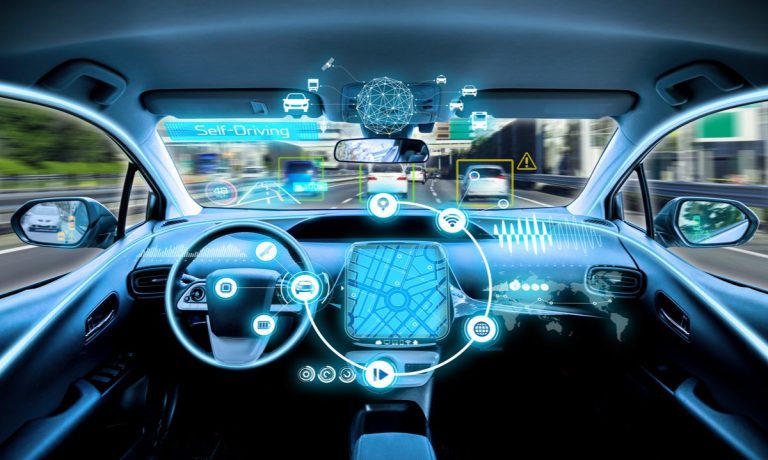Driverless Car Developers Benefit From Nevada Law Until Federal Law Is in Place

Nevada has been one of the strongest supporters of autonomous vehicles (AV) by permitting firms to conduct testing in real-world settings that is not permitted anywhere else in the country. In fact, the next step on the AV’s evolution is occurring right now in Las Vegas, where Motional, an Aptiv-Hyundai joint venture, will offer free robotaxi service.
Nevada’s law does not differentiate between testing or operating with a human safety operator onboard or without, and there is no legal provision addressing the offer of delivery or ride-hail services. Motional has operated with a safety driver behind the steering wheel in case the vehicle’s autonomous driving system malfunctions. But after not having an at-fault crash during its successful run in Las Vegas, Motional is preparing to remove the safety driver in 2023 on public rides.
TechCrunch reports Motional launched this new robotaxi service with a one-year delay due to COVID-related interruptions. The business plan has had to adapt as well. “Motional and Via initially planned to develop a ‘blueprint’ for on-demand shared robotaxis and learn how these vehicles could be integrated into mass transit. The companies have since scrapped plans for a shared service and will instead offer only private rides.” Motional got Nevada’s approval to test fully driverless vehicles in 2020. This led the company to expand its operations and employee headcount in Las Vegas and triple the size of its testing facility.
California, home state of multiple companies investing in driverless technology, also offers a friendly regulatory environment for AV developers. This summer, Motional announced plans to expand its presence in California with a new facility in Los Angeles, which would support testing on public roads.
The situation of these two states is in stark contrast with the situation at the federal level, where there is no regulation, and there are only timid efforts to pass new legislation in this regard. Earlier this month, The U.S. House Transportation and Infrastructure subcommittee held a hearing on the “road ahead for automated vehicles,” where most of the participants highlighted the need to adopt new federal rules for autonomous vehicles, with differences in what is the most important area to regulate.
Ariel Wolf, general counsel of the Autonomous Vehicle Industry Association, which includes as members Ford, Waymo, Lyft, Volvo, Uber or Cruise, said new rules are needed to remove barriers to the deployment of AV technology.
Most of the participants in the hearing, which included representatives of car manufacturers and tech companies, safety advocates and public officials, highlighted the benefits of AVs and the need for the U.S. to make sure that the country still leads the international race in this new technology while ensuring safety for drivers and road users.
Read more: Autonomous Vehicle Advocates Press White House for Coordinated, National Rules
In the meantime, and until Congress passes new legislation, Nevada continues enticing AV developers. According to the Las Vegas Review-Journal, “The Nevada Governor’s Office of Economic Development (GOED) last month awarded Motional a $407,869 tax abatement tied to its expansion, noting the creation of new jobs with an average hourly wage of $34.92.” But the testing of this technology will bring benefits to every single state thanks to the development of effective and safe systems. Motional is not the sole company intending to profit from the AV model, however. Other autonomous vehicle companies are getting close to launching commercial driverless operations. According to TechCrunch, last week “self-driving GM subsidiary Cruise launched a driverless robotaxi service in San Francisco for employees and certain members of the public. The company also applied for a permit from the California Public Utilities Commission for final approval to charge for ride-hail services. Cruise has big plans for scaling up its operations, which are all vertically integrated, to the point of having thousands of purpose-built Origin AVs on the road over the next few years.” We will have to see how federalism reacts after AVs start operating in mass with no direct human supervision.
People in Nevada and California are getting accustomed to this new technology, but voters in other states may not trust driverless cars and the services provided by them. Yet, as we have reported, legislators at the federal level have shown some interest in exploring general regulations that, if adopted, would supersede state rules and standardize regulations nationwide.
Sign up here for daily updates on the legal, policy and regulatory issues shaping the future of the connected economy.